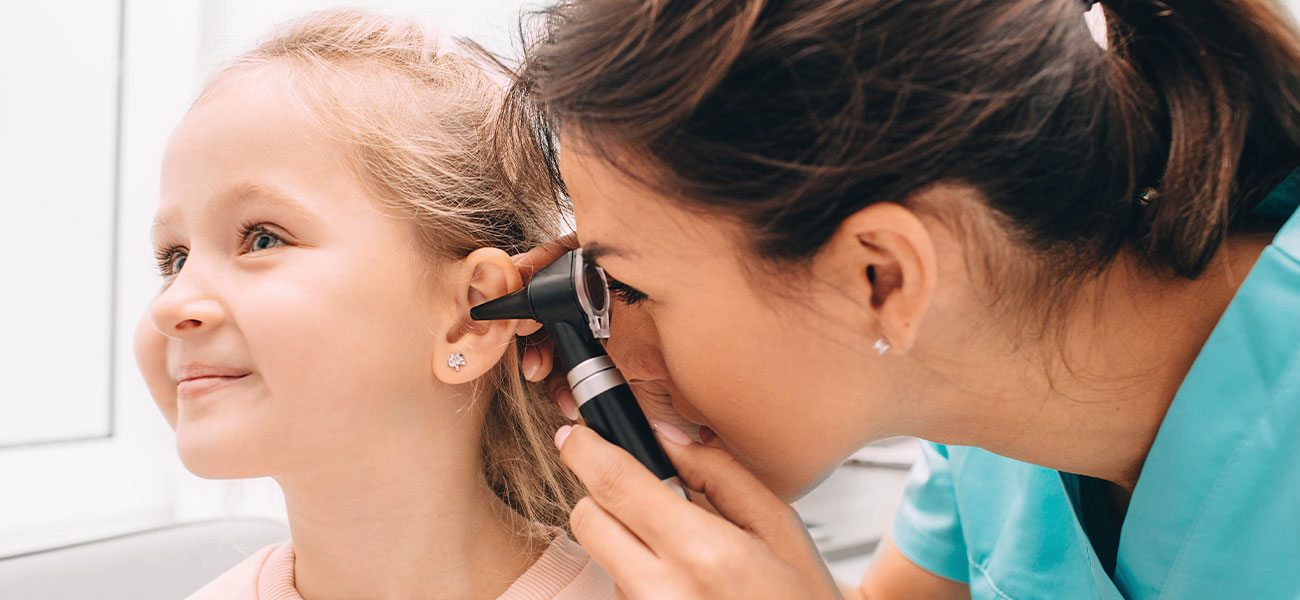Acute Otitis Media (AOM) is a common middle ear infection in children, but it can also occur in adults. The middle ear is a small air-filled cavity located just behind the eardrum. Inflammation in this area manifests as pain, a feeling of pressure, fever, abdominal pain, and fatigue. AOM usually starts suddenly and can cause serious problems if untreated.
Mechanism of Disease Development
AOM typically develops after a viral or bacterial upper respiratory tract infection. The Eustachian tube, which connects the nose to the middle ear, can become blocked or lose its function during an infection. This leads to fluid buildup in the middle ear, where bacteria can multiply and cause inflammation.
Common Infectious Agents Include:
- Streptococcus pneumoniae
- Haemophilus influenzae
- Moraxella catarrhalis
Risk Factors
Certain conditions can increase the risk of developing acute otitis media:
- Childhood: Due to the short and horizontal Eustachian tube, children are at higher risk for AOM.
- Daycare or Preschool: In crowded environments, infections spread more easily.
- Passive Smoking: Children exposed to tobacco smoke are more vulnerable.
- Allergic Rhinitis: Chronic nasal congestion can impair Eustachian tube function.
- Seasonal Factors: Upper respiratory tract infections are more common during the winter months.
- Enlarged and Inflamed Adenoid Tissue: Can lead to fluid accumulation in the middle ear.
Clinical Symptoms
Acute otitis media typically presents with the following symptoms:
Ear Pain: This is the most common symptom. Irritability and crying may be observed in children.
Hearing Loss: Fluid buildup in the middle ear can cause temporary hearing loss.
Fever: Occurs as the body fights the infection.
Ear Discharge: If the eardrum ruptures, there may be pus or blood-tinged discharge.
General Symptoms: Fatigue, loss of appetite, and sleep disturbances often accompany the condition.
Diagnostic Methods
To make a diagnosis, a doctor typically examines the ear with an otoscope or camera. The following findings are important for diagnosis:
- Redness and swelling of the eardrum.
- Mat appearance caused by fluid accumulation in the ear.
- If the eardrum is perforated, inflammation may be seen in the external ear canal.
Treatment Approaches
Treatment for AOM varies depending on the severity of the infection and the patient’s condition:
Pain Control:
Medications such as paracetamol or ibuprofen are used to relieve pain and fever.
Antibiotic Therapy:
If a bacterial infection is suspected, antibiotic treatment may be necessary. However, in mild cases in children aged 2-6 with strong immune systems, nasal sprays and cold medications may suffice.
Surgical Intervention:
In complicated cases, a myringotomy (a small incision) may be performed to reduce pressure on the eardrum and drain the infection.
Complications
If untreated, AOM can lead to serious consequences:
- Perforation of the Eardrum: Permanent tears in the eardrum may occur.
- Chronic Otitis Media: Recurrent infections may become persistent.
- Mastoiditis: Inflammation of the bone tissue behind the ear.
- Meningitis: Spread of infection to the brain membranes (a rare but serious condition).
Prevention Methods
To prevent AOM, you can take the following precautions:
- Vaccines: Flu and pneumococcal vaccines can reduce the risk of infection.
- Hygiene Practices: Regular handwashing helps prevent the spread of infections.
- Avoiding Tobacco Smoke: It is important for children to avoid exposure to cigarette smoke.
- Breastfeeding: Strengthens the immune system in infants and provides protection against infections.
Conclusion
Acute otitis media is usually a condition that can be easily controlled with proper treatment. However, it is important to consult a healthcare professional as soon as symptoms are noticed. Early treatment speeds up the recovery process and reduces the risk of complications. Healthy ears are crucial for a healthy life!




